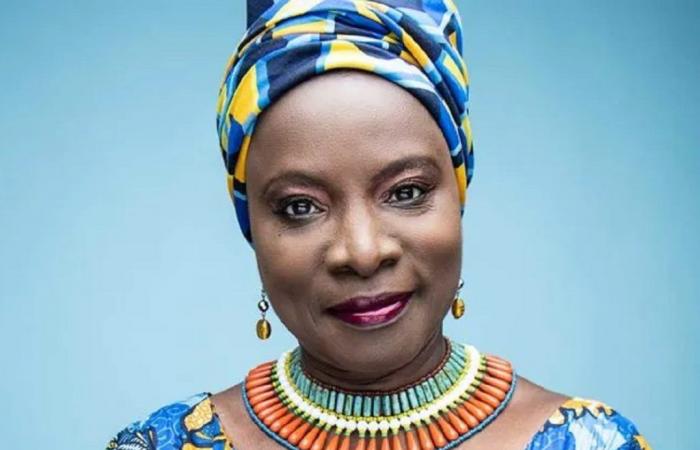Carried by this family mantra, star singer Angélique Kidjo is celebrating forty years of a career that has seen her cross fashions and celebrate African heritage, “cradle” of all music.
Whether she revisits Ravel’s Boléro, the salsa of Celia Cruz or David Bowie, in piano-voice or in a symphony orchestra, the singer of three nationalities (Beninese, French, American) and five Grammys has never lost sight of the continent which saw him born in Cotonou.
“There is no music that does not have its roots in Africa”declared to AFP the 64-year-old artist whose “forty years tour”launched a year ago in London, stops on Monday in Paris, in the Sainte-Chapelle, before closing at the beginning of November at Carnegie Hall in New York.
However, there is no question of taking your foot off the gas.
Still between two planes, Angélique Kidjo is working on a thousand projects and has just finalized the clip for her duet with Davido, Afrobeats heavyweight, after celebrating the hundredth birthday of former President Jimmy Carter in the United States.
“What makes me get up every day is the search for what can unite us,” explains the polyglot singer.
However, don’t talk to him about « World Music »the label under which she emerged in Europe after being spotted by Chris Blackwell, legendary producer of Bob Marley.
“I always hated that term. For me, it’s ghetto, it’s when you don’t sing in French or English, the languages of colonization.”
Sing before you speak
Where does this energy come from? Before becoming a great African voice alongside her idol Miriam Makeba, Angélique Kidjo was an asthmatic child, raised in Cotonou in a poor and large family, but open to the world.
“I started singing before I spoke”she remembers, to the point of worrying her parents. “They were afraid I wouldn’t speak. But when I started, they regretted it”laughs the sixty-year-old with a machine gun, born on a French national holiday in 1960, two weeks before the independence of Benin.
At his parents’ house, the vinyls amaze him and question him. “On 98% of the covers, there were only guys and I started to ask the question: and where are the women? “, she remembers, evoking the shock caused by Aretha Franklin, the first black woman she discovered on an album.
As a teenager, Angélique Kidjo wrote her first songs and made a name for herself in Benin. But the pressure of the Marxist dictatorship which demanded artists to take orders, forced her into exile in France in 1983.
Forty later, nothing is forgotten. “When we have experienced this and we know how fragile our freedom is, we cannot remain silent,” she notes.
And she has never been silent, on stage or at the G7 or Davos summits where she tries to shake people’s consciences. “Leaders are full of good intentions, but do not have the right information,” sighs the artist, who sang in 2009 for Barack Obama and, in 2018 in Paris, for the centenary of the armistice in front of Donald Trump.
“In Davos, I started to say to myself: there is something missing: where are the people? (…) If it’s a club where we sit down and pat each other on the back, things don’t move forward”says this Unicef ambassador and founder of Batonga, which has supported the education of African women since 2006.
The fate of women is his lifelong fight. “What twists my gut is seeing how we harm our children”says the one who has not yet solved the enigma of sexism. “The question I want answered is: what is the threat that the woman poses to the man? “.
With AFP






